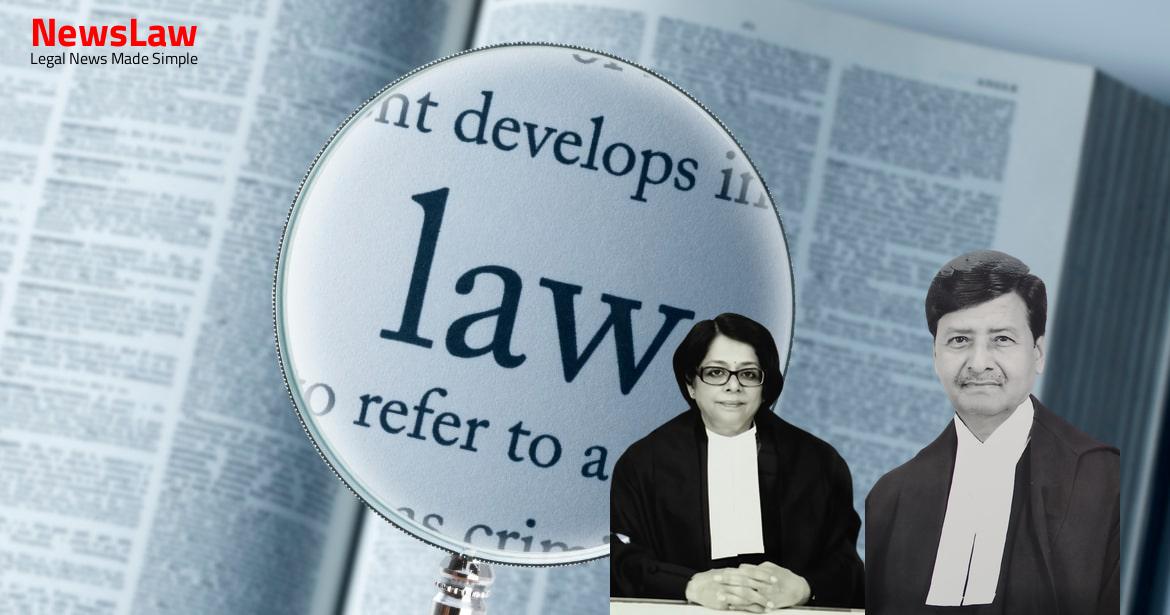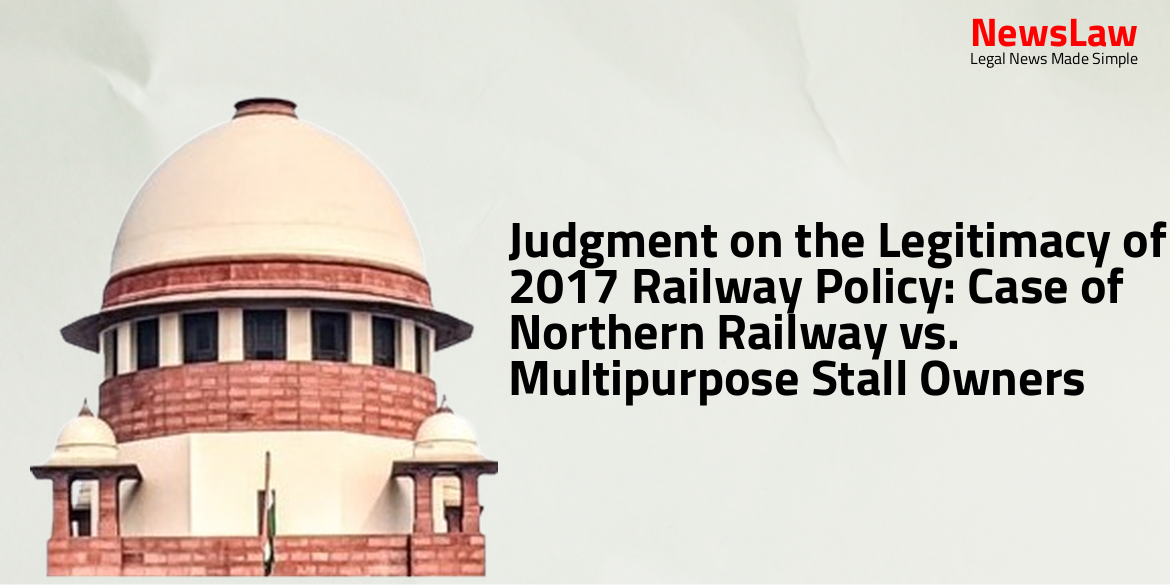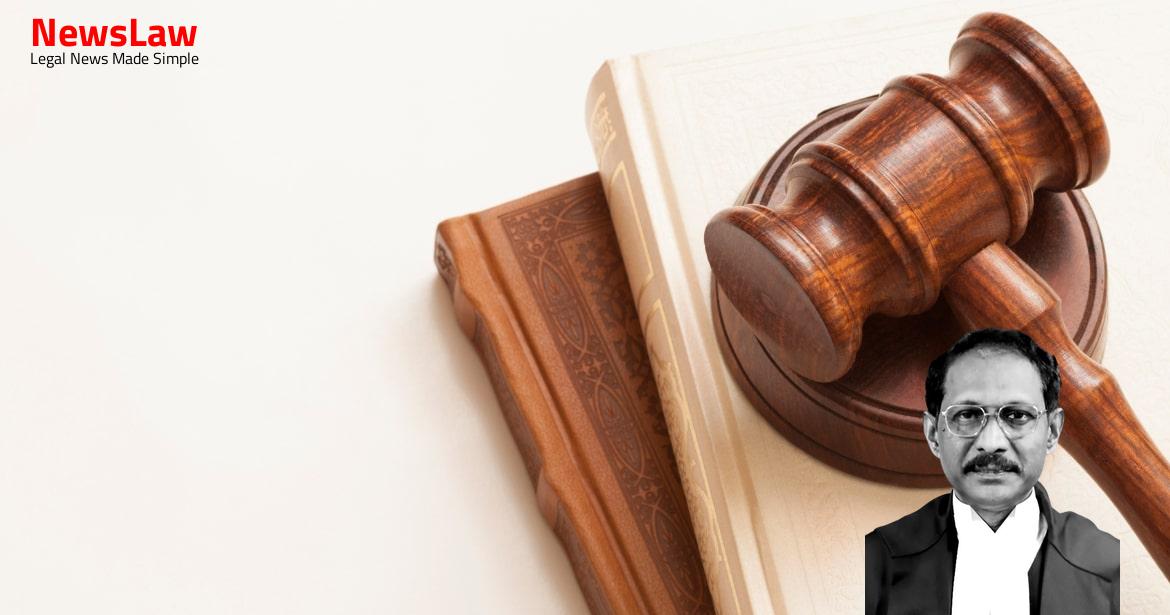In a significant ruling, the Supreme Court of India delivered a landmark judgement in the case of compensation awarded to Anakh Singh. The Court directed the State to provide compensation for the expropriation of land without due process. This ruling sets a precedent for upholding land rights and ensuring justice for individuals like Anakh Singh who have been wronged by the State.
Facts
- The Appellant, an illiterate widow, was unaware of her rights regarding the expropriation of her property in 1967 for road construction.
- Similar landowners had filed for compensation in 2004 in CWP No.1192 of 2004.
- The Appellant filed the present Appeals challenging the Judgment and Order in 2013 and 2014.
- The right to property guaranteed in the Constitution was removed as a fundamental right but remained a human right.
- The State had been in continuous possession of the property since 1967, which led to adverse possession.
- The High Court directed the State to acquire the appellant’s lands under the Land Acquisition Act in 2007.
- The Appellant learned of the proceedings in 2010 and filed for compensation or acquisition proceedings in 2010.
- The State admitted utilizing the land for road construction in 1967-68 and suggested a Civil Suit as a remedy.
- The Writ Petition and Review Petition were dismissed, granting the Appellant liberty to file a Civil Suit.
Analysis
- Article 300 A ensures that no person can be deprived of their property without lawful authority.
- The State must follow the legal procedure established by law when dispossessing a citizen of their property.
- Although not explicitly stated in Article 300 A, the obligation to provide compensation can be inferred from it.
- Article 300-A of the Constitution protects the right to property as a human right.
- The right to property is considered a basic human right and cannot be taken away without legal sanction.
- Delay and laches may extinguish the right to claim in certain circumstances.
- Forcible dispossession without legal sanction or due process violates human and constitutional rights.
- The State must comply with legal procedures for acquisition or requisition of property.
- The right to property is seen as an indispensable safeguard against government tyranny and economic oppression.
- Property rights are essential for the support of liberty and the preservation of other constitutional values.
- The State being a welfare State cannot claim adverse possession over private property for over 12 years.
- Delay and laches cannot be raised in cases of a continuing cause of action or when the circumstances shock the judicial conscience of the Court.
- The Appellant’s delay in moving the Court is not a valid contention considering the demand for justice is compelling.
- Condonation of delay is a matter of judicial discretion to be exercised judiciously based on the facts of the case.
- No period of limitation exists for courts exercising constitutional jurisdiction to provide substantial justice.
- The Appellant, an illiterate widow from a rural area, has been deprived of her property by the State without following due process.
- The State’s plea of adverse possession after 42 years of possession is not acceptable as it violates the rights of its citizens.
- The cause of action in the present case is continuing as the Appellant was expropriated of her property in 1967 without legal sanction or due process of law.
- The State admitted that the land was taken over without following any legal procedures.
- State initiated acquisition proceedings only in a case where the High Court issued directions, ignoring other land owners’ cases who were similarly affected.
- The present land owner has sought justice through individual cases in court, highlighting the need for compensation.
- Using Articles 136 and 142 of the Constitution, the Court directs the State to compensate the Appellant for the unjust expropriation.
Also Read: Analysis of Maintenance Laws and Enforcement Procedures
Decision
- Respondent-State directed to pay compensation as awarded by Reference Court in Anakh Singh’s case
- Compensation to include all statutory benefits like solatium and interest
- Compliance affidavit to be filed within 10 weeks
- An appeal pending before High Court of Himachal Pradesh by Ravinder Singh & Ors.
- If appellant files appeal within 8 weeks from compensation payment, it will be considered within limitation
- Orders dated 11.09.2013 and 13.05.2014 by High Court set aside
- Legal costs of Rs.1,00,0000/- to be paid by Respondent-State to the appellant
Also Read: Land Ownership Dispute under Regional and Town Planning Act
Case Title: VIDAYA DEVI Vs. THE STATE OF HIMACHAL PRADESH (2020 INSC 23)
Case Number: C.A. No.-000060-000061 / 2020



